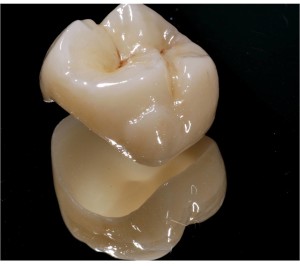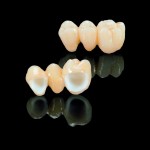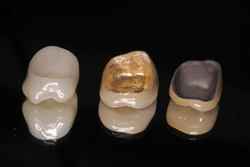Porcelain Crowns
Infection Control In The Dental Office
July 15, 2016Zirconia Crowns In A day
January 16, 2017Porcelain Crowns
Porcelain has the unique ability to mimic natural teeth. They are a bunch of different types of Porcelain Crowns and each has its own advantages.
Traditional feldspathic Porcelain Crowns
These are a glass ceramic that achieves a high degree of aesthetic result, can work for decades. It is usually applied by hand using a porcelain powder. The technician builds up the crown using a paintbrush and is able to layer different subtle shades into the crown. It is used as a veneering structure on porcelain fused to metal crown (PFM).
Glass ceramics with fillers
These different types of crowns are very ethic as well and much stronger and fracture resistant that a regular glass ceramic crown. They are also suitable for CAD-CAM systems allowing the dentist to scan the tooth in the mouth and create the crown digitally and then have the machine mill the crown out. One type of porcelain is E-max cad. It is Lithium dislocate materiel that comes in blocks. They are blue in color since they have yet to polymerize completely. Once  the crown is prepared, the crown goes into a porcelain oven and we glaze it to make it shiny and we can give it some color to mimic natural tooth shades. It is really quite an amazing materiel. It then gets bonded onto the tooth with composite cement.
the crown is prepared, the crown goes into a porcelain oven and we glaze it to make it shiny and we can give it some color to mimic natural tooth shades. It is really quite an amazing materiel. It then gets bonded onto the tooth with composite cement.
Glass-Free Ceramics, Polycrystalline
These are materials with alumina and  zirconia. Porcelain crowns made out of these materials are very hard and durable. They are almost impossible to break and might be a good choice for people that grind their teeth. The one problem with them is that they are not so aesthetic and ignored to use them a layer of porcelain needs to fused onto the outside of the zirconia.
zirconia. Porcelain crowns made out of these materials are very hard and durable. They are almost impossible to break and might be a good choice for people that grind their teeth. The one problem with them is that they are not so aesthetic and ignored to use them a layer of porcelain needs to fused onto the outside of the zirconia.
